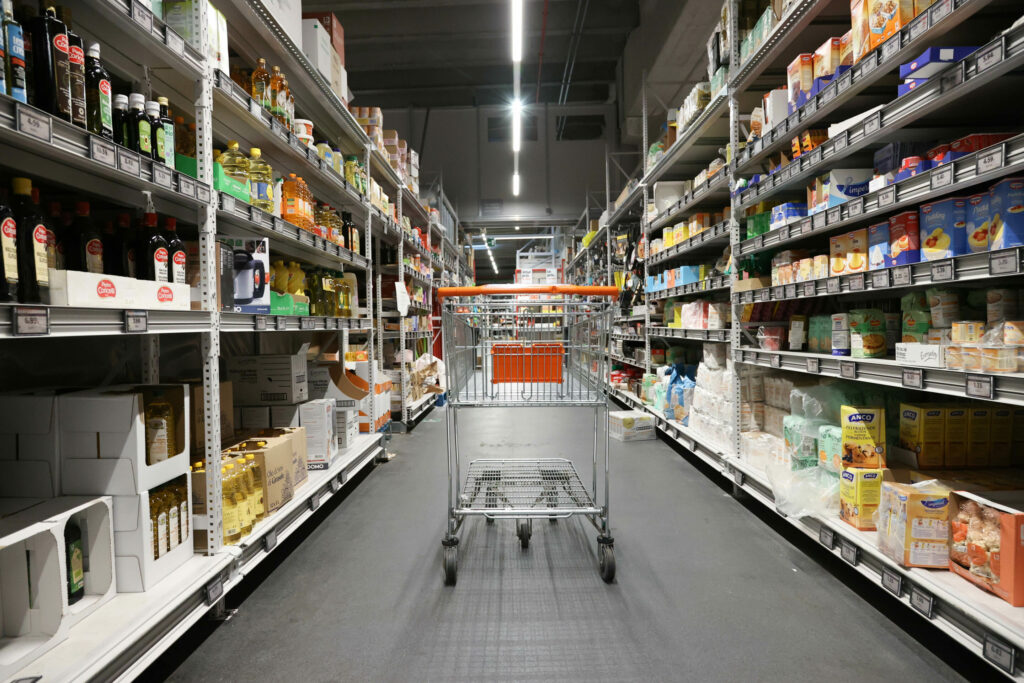Belgium's economic outlook is marked by uncertainty in the face of geopolitical shifts and domestic divisions that affect business opportunities within the country. The National Bank of Belgium (NBB) predicts growth of around 0.3% per quarter until 2027.
In its latest economic projections the bank highlighted the lack of a Federal Government as a major contributor to the uncertainty. Added to this is the threat of protectionist policies that the incoming Trump administration has indicated it will implement.
The publication, which charts the likely economic course Belgium will take between 2025 and 2027, estimates economic growth in the next three years of 1.2%–1.4%. This averages out at 0.3% per quarter, effectively continuing the "moderate and steady pace" seen in the first nine months of 2024.
Jobs and wages
Headline inflation has fallen somewhat less than expected recently, partly due to developments in food prices. As a result, inflation estimates have been revised upwards and headline inflation is not forecast to fall below 2% again until 2026.
The NBB predicts the rising national inflation index will trigger public sector wages and benefits to be indexed in January 2025, January 2026 and February 2027. However, wage growth on top of the automatic indexation will be limited. Wage cost growth in the private sector will "slow sharply" between 2024 and 2027, to an annual average rate of just 2.7%.
The central bank highlighted that hourly wage costs are now increasing more quickly in Belgium's three largest neighbouring countries, narrowing the wage gap with our geographic competitors. This should mean smaller losses in market share for Belgian companies and a growth in exports.
In addition, the NBB predicts that there will be just over 100,000 net jobs created between 2024 and 2027. This is "significantly lower" than in recent years but still enough to keep the unemployment rate at a historically low level – below 6%.

Credit Image: Belga/ Euc/ROPI
Household and business spending
Growth in household spending was moderate in 2023, despite a boost from automatic wage indexation. The bank attributes this to the cost of living crisis and steep energy bills.
Household spending picked up in 2024 and is expected to "continue growing at a steady pace" over the medium term, although the NBB noted that media attention on corporate bankruptcies and job losses "could trigger additional uncertainty and put a damper on household spending".
High mortgage rates and expensive building materials have dragged down residential investment recently. The NBB expects this sector to keep contracting until the end of 2024 and "only gradually rebound" next year. This trend is "quite remarkable given the need to renovate the existing housing stock to meet climate-related energy-efficiency obligations, as well as to increase supply with a view to avoiding a further worsening of housing affordability".
Whilst there was strong growth in business investment in 2023, official figures were skewed by several large transactions. The underlying trend "has been rather bleak recently", with the central bank predicting a modest pickup in business investment by 2026.
Sailing into the unknown
The predictions are subject to significant uncertainty given the current geopolitical environment, the NBB emphasised. This includes conflicts in Ukraine and the Middle East and Donald Trump's second term as US President.
The possible fiscal, trade and immigration policies that Trump might implement lead to a "high degree of uncertainty" for the euro area and Belgium, as they could affect economic growth and inflation. But whilst Trump's policies are not yet known, they are expected to spell bad news for Europe, sparking a reduction in growth and trade and a rise in inflation.
The central bank also noted that its forecasts are based on government measures that are already known or have been sufficiently specified. Given negotiations are ongoing to form a new Federal Government, "projections are subject to a larger degree of uncertainty than usual". The next government will immediately face the challenge of dealing with Belgium's growing budget deficit and public debt.
The NBB predicts that if policies remain unchanged, the budget deficit will increase from 4.2% GDP in 2023 to 6.1% GDP in 2027, largely driven by sharply rising age-related costs and rising interest payments.
Meanwhile the country's total public debt is predicted to swell from 104.6% of GDP in 2024, to just under 113% by 2027, driven by "large primary deficits" which will increase debt each year.

